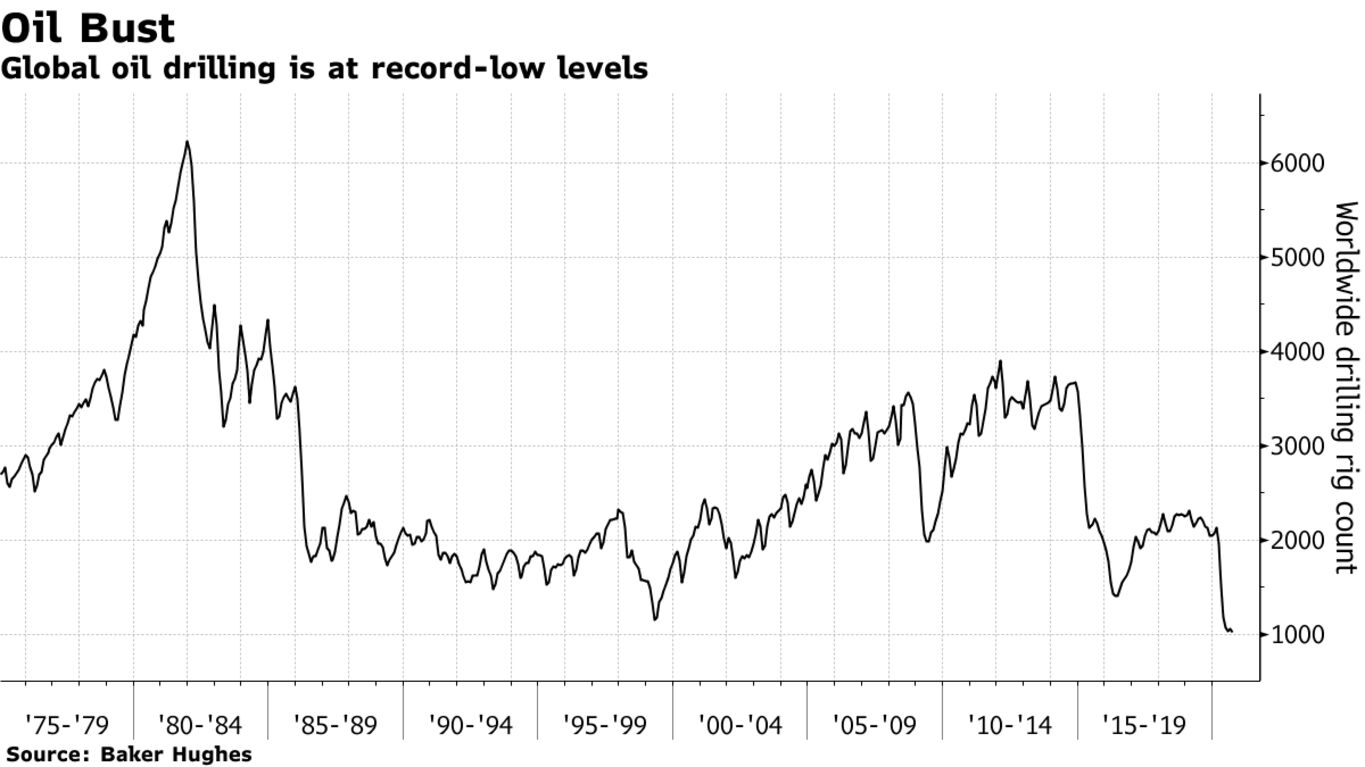Exxon Mobil Corp. will slash its global workforce by 15% by the end of 2022, an unprecedented culling by North America’s biggest oil explorer as it struggles to preserve dividends. The cuts will include 1,900 U.S. jobs, mostly in Houston, as well as layoffs previously announced in Europe and Australia and reductions the number of contractors, some of which have already taken place. Personnel reductions are Chief Executive Officer Darren Woods’s latest effort to curtail spending and halt the worst string of quarterly losses since Exxon assumed its modern form with the 1999 takeover of Mobil Corp.
“These actions will improve the company’s long-term cost competitiveness and ensure the company manages through the current unprecedented market conditions,” the company said in a statement on Thursday. Exxon rose 3.7% to $32.73 at 1:47 p.m. in New York and was the day’s best-performing exploration stock in the S&P 500 Index.
Big Oil Is Getting Smaller
World’s largest oil companies planning massive job cuts amid the pandemic.
Source: Data compiled by Bloomberg. Note: All job cuts listed were announced after the pandemic began.
Exxon’s total reduction means the company will reduce its workforce by about 14,000 people, split between employees and contractors, from year-end 2019 levels, spokesman Casey Norton said by email. The cuts will come through attrition, targeted redundancy programs in 2021, and scaled-back hiring in some countries.
Exxon’s Big Oil rivals are also cutting thousands of jobs in response to the pandemic-induced demand slump. BP Plc plans to slash 10,000 jobs, Royal Dutch Shell Plc will cut as many as 9,000 roles and Chevron Corp. has announced around 6,000 reductions.
Exxon’s workforce stood at about 88,000 people, including 75,000 in-house employees and the rest comprised of contractors, as of year-end 2019, Norton said.
Suburban Campus
In the U.S., the pain will be particularly acute at the suburban Houston location where Exxon opened a sprawling, glass-walled campus in 2014 to house 9,000 employees from exploration, chemicals and other units that had previously been dispersed throughout the metro area. The company’s corporate headquarters remains in the Dallas area.

The fact that Exxon is cutting at all is a sign of its weakened financial position compared to its former status as the S&P 500 Index’s biggest company less than a decade ago and a profit powerhouse used to riding out oil-price cycles.
This year’s downturn has been particularly damaging because it affected refining, usually a cushion in times of low oil prices, and because it came at a time when Exxon was already increasing borrowing to fund a large expansion program. The company was forced to retreat on these plans in April, reducing capital spending by $10 billion and delaying or scaling back most of major projects.
The stock has plunged more than 50% this year. Its dividend yield is now more than 10%, indicating that investors are anticipating a cut. Exxon maintained the quarterly payout on Wednesday, and is expected to post its third consecutive quarterly loss when it reports earnings tomorrow.
